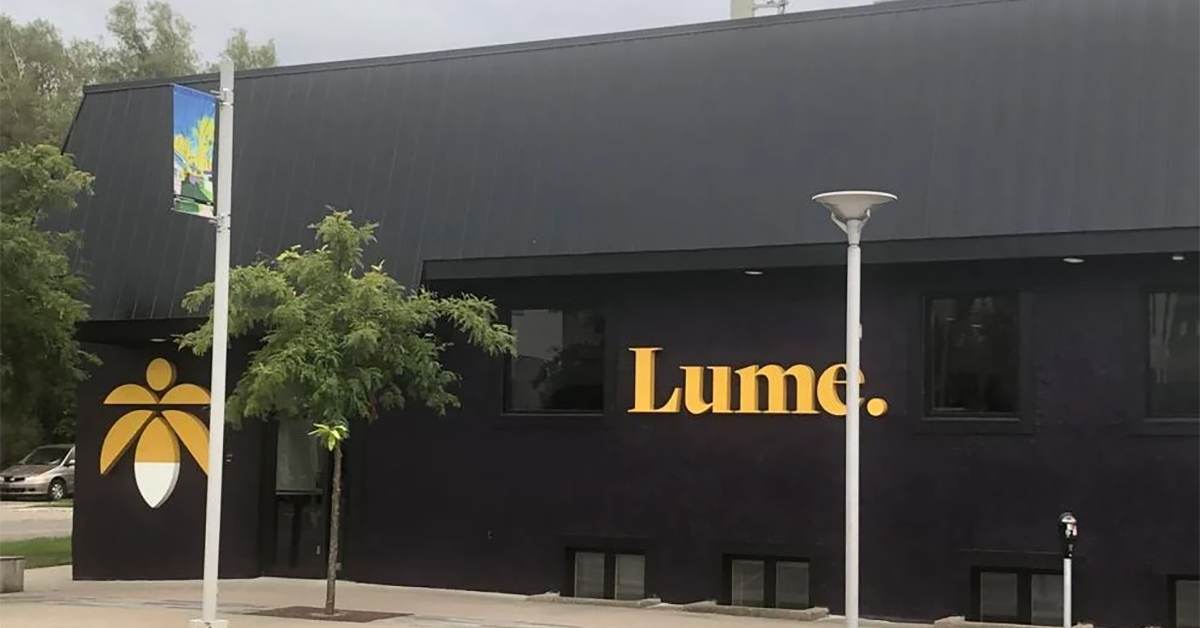Michigan Cannabis Summit: A Comprehensive Dive into the Blossoming Industry

The bustling city of Detroit recently became a hub for cannabis enthusiasts and industry experts as Green Market Report embarked on a road trip to host its inaugural Michigan Cannabis Summit. Held on September 6th at the esteemed One Campus Martius, the event garnered significant attention and anticipation.
The highlight for many attendees was undoubtedly the opportunity to interact with Rob Sims, a dynamic co-founder of Primitiv. As the buzz around the venue grew, attendees also had the unique privilege to hear from Brian Hanna, the Michigan Cannabis Regulatory Agency Executive Director. The insight provided by these prominent figures underscored the significance of the event.
A crucial topic that dominated discussions was the U.S. Department of Health & Human Services' recent recommendation. In a segment titled "A Closer Look at Schedule 3", experts shed light on the proposed shift of cannabis from Schedule 1 to Schedule 3 on the controlled substances list. They delved into the potential ramifications and opportunities this change could present for existing cannabis operators.
"Finding Your Lane" was another riveting panel discussion. Comprising seasoned professionals who've mastered the art of identifying opportunities, the panelists shared their experiences and strategies in navigating the competitive landscape of the Michigan cannabis market. Their tales of determination and insight proved invaluable for attendees seeking to carve a niche in this thriving sector.
For newcomers to the industry, the "Entering the Michigan Market" panel was an eye-opener. The experts explored the intricate nuances of establishing a foothold in Michigan's cannabis domain. With some regions being cannabis hotspots and others resembling deserts, the discussion was a guide to navigating this diverse terrain.
Investors had their plates full with the "Investing in Michigan Cannabis" session. The panel highlighted that some of the cannabis industry's top performers hail from Michigan. Investment aficionados deep-dived into the vibrant market, dissecting the intricacies of stocks rooted in the Wolverine State.
To conclude, the "We Want What We Want" segment was a revelation. Backed by robust data, it unveiled the products that have been reigning champions in the Michigan market, shedding light on consumer preferences and market trends.
In addition to these enlightening sessions, the day witnessed a fascinating data presentation by Hoodie Analytics and Surfside. A significant takeaway was the intriguing revelation that affluent regions don't necessarily equate to premium cannabis sales, a fact that left many pondering.
In essence, the Michigan Cannabis Summit was more than just an event – it was a vibrant tapestry of knowledge, networking, and insights into the future of cannabis in Michigan. As the state's cannabis industry continues to evolve, such summits will undoubtedly play a pivotal role in shaping its trajectory.
MJ Unpacked Detroit: The Heartbeat of the Cannabis Industry

Detroit, often celebrated for its influential music and automobile industries, is about to add another feather to its cap: hosting the acclaimed MJ Unpacked. This B2B cannabis conference, having previously illuminated the scenes of New York and Las Vegas, now brings its legacy to Michigan from October 10th to 12th at the Motorcity Casino Hotel.
Michigan's reputation in the cannabis landscape is nothing short of impressive. Rich in authentic cannabis culture, the state offers a unique blend of craft cannabis quality, thanks to its pioneering medical caregiver program, and a competitive recreational market that benefits consumers with high-quality product offerings.
Those familiar with the national cannabis conference landscape will find a familiar setup at MJ Unpacked. The event is expected to house a dynamic brand exhibition hall, complete with booths, brand activations, and distinct displays. Yet, what sets this event apart is its exclusive audience, with a spotlight on licensed operators, especially those occupying C-suite positions, and accredited investors.
No premier event is complete without an evening to remember. MJ Unpacked, in collaboration with Farechild Events and Sensi Media Group, is hosting a grand afterparty on October 10th at 7pm. Attendees can anticipate an assortment of drinks, engaging brand activations, and a serene outdoor space, all complemented with a hassle-free shuttle service from the hotel.
For a comprehensive look at what's in store, view the full event agenda by clicking here. Don't miss out on any details!
IRS Uncovers Deceptive Practices by Michigan Dispensary Entrepreneur

A Michigan resident, Ryan Richmond, has been convicted in a Detroit federal court for evading federal income taxes and obstructing the IRS, along with other offenses.
The evidence and court records revealed that Richmond, from Bloomfield, was the owner of the marijuana dispensary, Relief Choices, LLC, located in Warren, Michigan. Between 2011 and 2014, Richmond primarily used cash for the dispensary's operations. He also funneled customer credit card transactions through an unrelated third-party bank account, obscuring his true business earnings. During 2015 and 2016, Richmond misled IRS officials, notably an IRS auditor assessing his personal taxes. His deceptive practices resulted in over $1.15 million in tax losses to the IRS.
The sentencing for Richmond is set for December 13th. He could face up to five years in prison for each tax evasion charge, three years for obstructing the IRS, and one year for the intentional failure to file a tax return. Additionally, Richmond may be subjected to supervised release, restitution, and other financial penalties. The final sentencing will be decided by a federal district court judge, taking into account the U.S. Sentencing Guidelines and related statutory considerations.
The announcement came from Acting Deputy Assistant Attorney General Stuart M. Goldberg of the Justice Department's Tax Division. The IRS Criminal Investigation division handled the probe, with Trial Attorneys Mark McDonald and Christopher P. O'Donnell from the Tax Division leading the prosecution.
Greenhouse of Walled Lake's Battle Against Rising Counterfeit Currencies

The owner of Greenhouse of Walled Lake, a dispensary in Michigan, Jerry Millen, has expressed increasing concern over the prevalence of counterfeit money being used at his establishment. Over the recent months, he has reported significant losses amounting to hundreds of dollars every week due to fake currency transactions.
"In the past, we've occasionally encountered counterfeit bills, but the situation has escalated dramatically in the last two to three months," explains Millen. This surge in counterfeit currency usage has posed a significant financial threat to businesses like his.
An underlying issue compounding the problem is that, due to the federal prohibition of cannabis, Michigan-licensed cannabis dispensaries are barred from accepting credit card payments. As a result, they are more susceptible to counterfeit currency exchanges.
Richard Convertino, a former federal prosecutor, sheds light on the severity of counterfeiting. "The U.S. government classifies counterfeiting as an act tantamount to warfare," he notes. Convertino further explains that while counterfeit bills can sometimes be quite convincing, especially during a busy business day, there are certain indicators that can help identify them. The texture of the money is often the most telling sign. "Genuine currency has a distinct feel due to its cotton and linen blend. It's not just regular paper. If something about the bill feels off, there's a high likelihood that it's counterfeit," advises Convertino.
For Millen, the ultimate solution to this growing concern is clear: federal legalization of cannabis. He argues that it's contradictory for businesses like his to dutifully pay taxes and contribute positively to the community, yet only be permitted to accept cash, leaving them vulnerable to counterfeit operations. "We're responsible citizens, diligently paying our taxes. But the irony is, we're restricted to cash transactions which expose us to such frauds," Millen points out. "A move towards federal legalization would not only resolve this counterfeit issue but would also validate the cannabis industry as legitimate."
It's also crucial to note that Michigan's legal framework has stringent penalties for those caught in possession of counterfeit money with the intent to use. Such offenses may lead to a felony charge, potentially resulting in up to five years of imprisonment or hefty fines. This serves as a stark reminder of the legal implications surrounding counterfeit currency and the broader issues facing the cannabis industry in the region.
Entheofest: Michigan's Push to Decriminalize Psychedelic Plants

Nestled in the heart of the University of Michigan's campus lies The Diag, an iconic locale that has seen countless gatherings and events over the years. One such event that it's most famously associated with is Ann Arbor's renowned Hash Bash. Since 1972, this sought-after event has been a focal point for those advocating and pushing for reforms in marijuana laws, both at the local and broader levels.
Today, change is once again brewing at The Diag, but this time, the spotlight isn't solely on cannabis. Enter the world of psychedelics.
Introducing Entheofest
Now in its third year, Entheofest champions the cause of decriminalizing psychedelic plants and fungi throughout Michigan. This isn't just a sudden movement; the seeds were sown in 2020 when the Ann Arbor City Commission, in a unanimous decision, chose to decriminalize entheogenic plants at the city level. This landmark decision, recognized by the Washtenaw County Prosecutor's Office, means that within the entire Washtenaw County, there won't be any prosecutions related to the use, growth, or possession of these plants. However, it's essential to note that those found operating vehicles under the influence will face legal consequences.
Delving into the World of Entheogens
But what exactly are entheogens? A term that translates to "creating the divine within", entheogens primarily refer to hallucinogenic plants and fungi. This term was conceptualized in the 1950s as an effort to offer a more neutral, positive spin to the word 'psychedelic'. In essence, entheogens are natural substances offering transformative, spiritual experiences. While the current discourse often revolves around mushrooms rich in compounds like psilocybin and psilocin, the entheogenic family includes others such as peyote, ayahuasca, and iboga.
Reports from the Washtenaw County Prosecutor's Office highlight that entheogenic plants typically don't lead to addiction and have a minimal risk of fatal overdoses. Contrary to what some might believe, they aren't linked to violent behaviors. In fact, some studies indicate their association with reduced incidents of partner violence among men. And it's not just Ann Arbor that's open to these plants. Places like Denver, Colorado, as well as Oakland and Santa Cruz in California, have also decriminalized them.
Mark Your Calendars for Entheofest
If you're eager to learn more and engage in insightful discussions, the third Entheofest event is right around the corner. Scheduled to be held on Sunday, September 17th, from 1:11 p.m. to 4:20 p.m., The Diag on U of M's campus will be buzzing with enthusiasts, advocates, and the curious.
Meet the Speakers
This year's Entheofest promises a rich tapestry of voices. Participants will get to hear from individuals deeply entrenched in the world of psychedelics and hallucinogens. Among them are Jim Salame, the Rev. Mariela Perez Simon, and Julie Baron, who wears multiple hats as the co-founder of Decriminalize Nature Michigan, president of the Michigan Psychedelic Society, and founder/executive director of Decriminalize Nature Ann Arbor. U.S. Rep. Debbie Dingell of Ann Arbor will also be gracing the event with her insights.
For more in-depth information and updates directly from the source, visit the official Entheofest website: https://entheofest.org
Lume Continues Its Michigan Expansion with New Traverse City Outlet

Recently, Lume added a new store to its growing roster, situated at 401 W. Front Street, Traverse City. This establishment, repurposed from a former office building, marks Lume's seventh branch in northwestern Michigan. As of now, Traverse City is home to 12 adult-use marijuana shops, with Lume's recent opening. Additionally, city officials have confirmed that four other potential outlets are in line for state licensing. Once approved, this will take the number of adult-use shops in the city to 16.
Lume operates as a cannabis dispensary in Traverse City, MI, offering a range of cannabis flower types and other marijuana-related products. Their Traverse City dispensary provides an environment where customers can explore different product offerings, aided by the store's staff. Lume's inventory includes various cannabis products such as indica, sativa, and hybrid THC products, along with their Lume CBD line. The store also carries cannabis accessories and Lume-branded apparel. For those who prefer online shopping, Lume offers an online store, with options for home delivery or in-store pickup.
A distinguishing feature of Lume's product line is the inclusion of both Lume Cultivated and Lume Curated products. The Lume Cultivated range comprises products developed from their proprietary cannabis strains, which are grown and packaged internally. This line presents a selection that includes cannabis flower, pre-rolls, and edibles, available exclusively at Lume stores in Michigan. With an in-house approach to cultivation and packaging, Lume ensures that their products meet specific internal benchmarks.
Before Lume's establishment, the founders had a background of interest in recreational marijuana. Their business model includes physical retail outlets, a cultivation segment, and a digital platform for online purchasing and product delivery.
Lume Cannabis Co. - Traverse City, MI
- Website: https://www.lume.com
- Address: 401 West Front Street, Traverse City, MI 49684
- Phone: 231-221-0048
- Hours of Operation:
- Monday to Saturday: 9am–9pm
- Sunday: 10am–8pm


 Helpful Links
Helpful Links